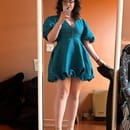“Respect was invented to cover the empty place where love should be.”
Tolstoy, Anna Karenina
Anna Karenina follows two stories of two young girls entering society in Victorian Russia. A young girl named Kitty is being courted by two men, a romantic and charming Alexi Vronsky and an awkward but nice landowner Konstantin Levin. Sometime during the party season, Alexi meets a charmingly beautiful woman named Anna Karenina. Anna is married to a man named Karenin, but this doesn’t stop her from falling deeply in love with Alexi, and him with her. Eventually, if we skip some drama, she gets a divorce and moves in with Alexi. Anna’s growing resentment for Alexi and his freedom in a society quickly poisons their relationship. After a fight that prompts Alexi to leave home, Anna throws herself in front of a train ending her story in tragedy. At the same time, Kitty, and her relationship with Konstantine, after a rocky start, blossomed into a very mutual love- and for them the story ends with a happy family and optimistic future. The moral of the story is that a life of simplicity though boring is preferable to a life of passion that if pursued ends in tragedy.
Priscilla is a 2023 movie directed by Sofia Coppola about the life of Priscilla Presley from when she meets Elvis to when she leaves him. Elvis never had much control of his own life once his career got off the ground, so as an outlet, likely without even realising it, he groomed Priscilla from a young age. The movie shows their toxic, up and down, relationship that ends triumphantly when Priscilla has worked up the courage to leave the marriage. I want to make it clear that I am not talking about the real lives of Elvis and Priscilla. I’m interested in the characterised versions of them presented by Coppola and the plot she presents which is a film inspired by their true lives rather than a realistic documentary.
Both Anna and Priscilla left a simple life full of potential to pursue one full of momentary extravagance that ended in sadness. Of course, Priscilla’s story doesn’t end in ultimate tragedy; she, unlike Anna, leaves her unhappy life to hopefully enter a new more fulfilling one.
Bluebeard is a story about a woman who is married off to a seemingly nice man with a bluebeard. He treats her as good as gold until she discovers his hidden secret that fills her with horror. He decapitates each of his wives and stores their severed heads in a closet. In these stories young girls tricked by a prospective life of beauty who end up in toxic unhappy relationships is a common phenomenon in storytelling. Why do stories of women who get caught up in whirlwind romances often lead to unhappy lives?
At each chapter of youth, we are promised something different for future relationships that by the time we reach adulthood has developed into one complete internalised narrative. The Disney princesses promise us a man who comes into our lives and saves us from jealous and selfish people. As we get older, we watch rom coms where teen girls fall in love with brooding and mysterious boys who hate everyone except her. Other rom coms show us that the right man for us will be under our noses the whole time, the funny friend that sees through our manipulative boyfriends and shows us that we are deserving of kindness. By the time we are adults we believe lowering our standards and being the only one able to fix a man will get us our happiness ever after.
These narratives teach us the power dynamics in relationships that we start embodying and expecting in our own relationships, like Priscilla and Anna. We think the right man will save us from our bad or boring lives and fill it with unending happiness, like we’re the luckiest girl in the world. But then of course, the happiness ends, we see they were never a prince or knight, the men were always just men, humans with struggles and flaws like everyone else and unfortunately it breaks the magic.
We’ve been spoon fed the message that we must go out in the time with a man for so long and it unfortunately like in Anna Karenina ends in broken hearts. So, in this cycle of hope and work that ends in sadness, how do we find happiness? I suppose there isn’t an essay answer, maybe the only solution is to go for guys who like us the same way we want to be liked, the way we think we can teach a man to love us. But for that to happen we need to believe that we are worth loving. Part of the ‘I can fix him’ mindset is a belief that we must earn love, we must go through suffering or struggle to be worthy of love. To fall for men who like us from the very start we must be confident in us deserving love just for being loveable.
“You’re losing me to a life of my own.”
Coppola, Priscilla
Priscilla and Anna Karenina are both special in the way they dispel the myth told by almost every other romance media, that if we work hard to fix him, he’ll love us back. These movies and books show the danger of believing a man is what we need to fix our boring lives. Tolstoy was right when he said that a predictable average life, though boring, ends with happier results than a life of passion seeking which often ends in disappointment and heartbreak.


